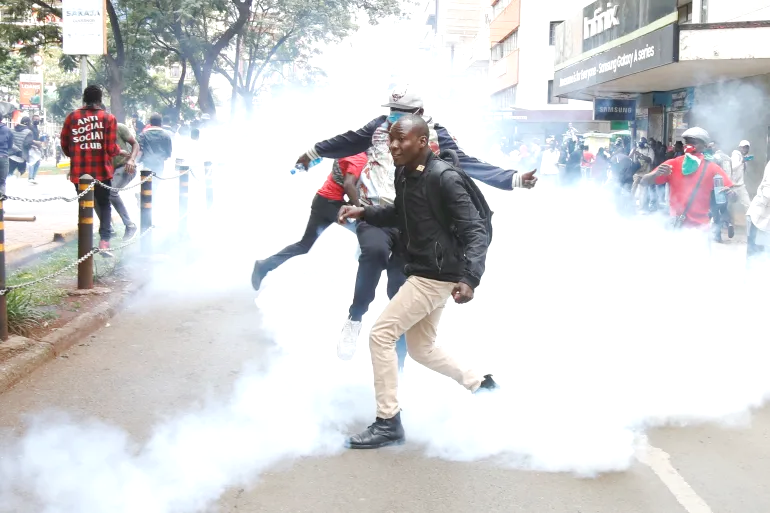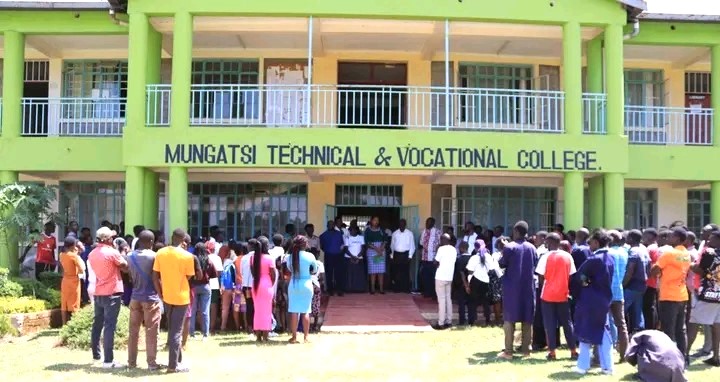The demonstrations by the generation Z (Gen Z) against the government over the Finance Bill 2024/2025 did not surprise historians, scholars of management of organizational changes and group dynamics. The formation of the government by the United Democratic Party arose from a coalition-group of parties-with different political persuasions kicking in group are dynamics that undergo four main stages namely farming, storming, norming and performing.
Generally the forming stage is the honeymoon period when in politics, the winning party is celebrating its victory. The storming stage is when personal interests set in. The norming stage is when the government set out to bring order in its management. The performing stage is when the executive is working in harmony with other arms of government.
Between 1963 and 1966 Jomo Kenyatta, as first president, enjoyed the honeymoon period. Between 1966 and 1871 his regime underwent through storms with the formation of an opposition party Kenya People’s Union (KPU), detention of its leaders, assassination of Tom Mboya and the military attempted coup. After this period, Kenyatta enjoyed some stability till 1978 when Kenyatta passed on.
Daniel Moi enjoyed some honeymoon between 1978 and 1982 by assuring citizens and foreigners that he would follow in the footsteps of Kenyatta and maintain stability. The period 1982 to 1992 was stormy for him with the attempted coup and the attendant crackdown. Moi managed to keep the country stable through adept management of the affairs of the country in the multiparty era from 1992 till 2002 when he retired.
President Kibaki with all the good will he had on taking over power had a very short period of honeymoon between 2003 and 2005. His disagreement with Raila Odinga over the Memorandum of Understanding on power sharing and the 2005 constitutional referendum led to a stormy period between 2005 and 2008 when a coalition government was formed.
President Uhuru Kenyatta enjoyed a five-year honeymoon period and a stormy second term due to his disagreement with then Deputy President William Ruto.
READ ALSO:
The demonstrations by the Gen Z against President William Ruto’s government marks the end of the shortest honeymoon period of all presidents of Kenya and the beginning of a stormy period of his regime. President Ruto must now go back to history to find out how his four predecessors managed change.
President Kenyatta and Moi largely succeeded by using authoritarian means to maintain power but also managed to take the country through periods when the economy oscillated between bounty and adversity. To their credit, Kenya performed much better than almost all other African countries in the first 39 years of KANU rule.
President Kibaki managed his stormy period through a consistent struggle to improve the economy and education through heavy funding. Furthermore, the external driven constitutional changes chaperoned by Koffi Annan and Western powers ensured that he completed his second term successfully.
President Uhuru never had any major threat to his regime from the citizens. In fact his storms were of his own making by displaying hostility to his deputy and campaigning against him in the 2022 elections.
The present challenge to President Ruto is akin to that of President Kibaki who reneged on the MoU with Raila Odinga. In Ruto’s case he made a myriad of promises to the “hustlers” including raising expectations that the economy would be revived. He even went further to enter into signed agreements through chatters with several professional groups representing their sectors.
Furthermore, for unknown reasons he seems to have fallen out with his deputy and has also, unfortunately, put himself into a situation in which he is almost the only one who comments on the economy, agriculture, education, and health and even trying to manage county governments. He has hardly managed to fulfill any of his promises and does not seem to be committed to fighting corruption. Generation Z has taken offence to all these challenges affecting them and their parents.
What educational lessons can be deciphered from the current scenario? First is that the study of history is very important. What happened in France in 1789 and the Arab countries a decade ago and how former presidents of Kenya handled their crises provide useful historical perspectives to President Ruto.
Secondly, President Ruto needs expert advice on managing group dynamics in the context of current social, political and economic circumstances. Three, the government needs to study literature on management of change. President Ruto, in the view of many people, is too fast in making changes to the extent of losing his followers far behind.
President Ruto needs to consider reducing his trips locally and abroad and sit in his office to manage the affairs of the country the way Kibaki did. It is through many focused meetings — such as resuscitating the abandoned vision 2030 — that solutions to these challenges will be found. Over to you bwana President.
Mwalimu Andrew Kibet
You can also follow our social media pages on Twitter: Education News KE and Facebook: Education News Newspaper for timely updates.






